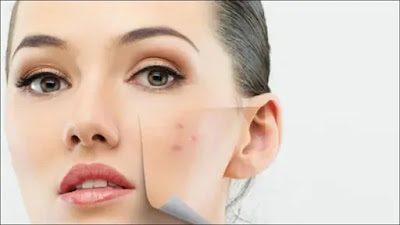Natural Remedies for Acne-Prone Skin and Blemishes
Acne is a common skin condition that affects many individuals, causing blemishes and reducing self-confidence.
While there are numerous over-the-counter products available, natural remedies can be effective alternatives. In this article, we will explore eight natural remedies for acne-prone skin and blemishes, providing you with safe and accessible solutions.
Tea Tree Oil
Tea tree oil is renowned for its antibacterial properties, making it an excellent natural remedy for acne-prone skin. Its active ingredient, terpinen-4-ol, helps combat the bacteria responsible for acne breakouts. To use tea tree oil, dilute it with a carrier oil like coconut or jojoba oil and apply it to the affected areas using a cotton swab. Remember to perform a patch test before applying it to your entire face to ensure you don't have any adverse reactions.
Aloe Vera
Aloe vera has soothing and anti-inflammatory properties that can help reduce redness and inflammation associated with acne. It also aids in healing and preventing scarring. Extract the gel from an aloe vera leaf and apply it directly to the affected areas. Leave it on for 20 minutes before rinsing it off with lukewarm water. For best results, repeat this process twice daily.
Apple Cider Vinegar
Apple cider vinegar contains organic acids that can help kill acne-causing bacteria and balance the skin's pH level. Mix one part apple cider vinegar with three parts water and apply the solution to your skin using a cotton ball. Leave it on for about 10 minutes before rinsing it off. Start with a lower concentration of vinegar and gradually increase it if your skin tolerates it well.
Honey
Honey possesses antimicrobial properties that can help fight acne-causing bacteria. It also has anti-inflammatory effects, reducing redness and swelling. Apply raw honey directly to the affected areas and leave it on for 10-15 minutes before rinsing it off with warm water. You can also mix honey with other natural ingredients like cinnamon or turmeric for added benefits.
Green Tea
Green tea is rich in antioxidants that can help reduce inflammation and sebum production, making it an effective remedy for acne-prone skin. Brew a cup of green tea and allow it to cool. Then, apply it to your face using a cotton ball or spray bottle. Leave it on for 10-15 minutes before rinsing it off. Drinking green tea regularly can also provide internal benefits for your skin.
Witch Hazel
Witch hazel is a natural astringent that can help control oil production and reduce inflammation. It also tightens the skin's pores, preventing further breakouts. Apply witch hazel to your skin using a cotton pad and leave it on for a few minutes before rinsing it off. Avoid using products containing alcohol, as they can be drying and irritating to the skin.
Turmeric
Turmeric contains curcumin, a compound with potent anti-inflammatory and antimicrobial properties. Create a paste by mixing turmeric powder with water or honey and apply it to the affected areas. Leave it on for 10-15 minutes before rinsing it off. Be cautious, as turmeric can stain clothing and surfaces.
Proper Skincare Routine
In addition to natural remedies, establishing a proper skincare routine is crucial for managing acne-prone skin. Cleanse your face twice daily with a gentle cleanser suitable for your skin type. Exfoliate once or twice a week to remove dead skin cells and unclog pores. Use non-comedogenic moisturizers and sunscreen to keep your skin hydrated and protected. Avoid touching your face excessively and always remove makeup before going to bed.
Conclusion
Acne-prone skin and blemishes can be effectively managed with natural remedies. Tea tree oil, aloe vera, apple cider vinegar, honey, green tea, witch hazel, turmeric, and a proper skincare routine are all valuable tools in combating acne. Embrace these natural remedies and enjoy healthier, clearer skin without the use of harsh chemicals.
